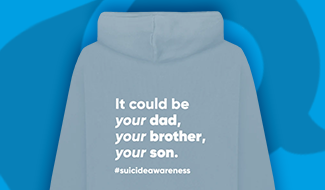Mediation is available. Mediation is publicly funded. Mediation works. Why, then, do more people not use it?
Anyone who has heard Liz Stokoe of Loughborough University speak on the subject of “overcoming barriers to mediation” will have been fascinated by the discussion of two-sided solutions to one-sided problems. As she puts it: persuading someone to come and talk to the person they can’t talk to is not easy. I am not going to begin to try and express all of her research here. If you haven’t yet come across Liz Stokhoe and are interested in ways of improving mediation I would thoroughly recommend looking her up: @LizStokoe.
For many people it appears to be easier to go to court. People seem to feel that this is standing up for themselves and fighting their corner. And that’s a good thing, right?
Professionals can’t “sort out” the layers of hurt and anguish and bitterness and betrayal that cause a family to break down.
The reality is that that’s not what actually happens. In my experience the vast majority of cases do not go all the way to a final hearing where both parents give evidence. Some cases at court are settled because the parties reach an agreement (this could have been done more quickly, with less stress and at less cost with mediation). Some are settled because your lawyer ‘tells’ you what you have to do. Some end when the Judge tells you what is going to happen. The second and third of those have got nothing to do with you standing up for yourself.
There seems to be an attitude that you can pay a professional to “sort it out” for you. Professionals can’t “sort out” the layers of hurt and anguish and bitterness and betrayal that cause a family to break down. They can’t magic all of that better and provide you with a ready-wrapped contact/residence parcel. Getting beyond those emotions and working out how to co-parent amicably for the sake of the children takes courage, hard work and understanding from both parents not just at the start but for all those years in the future when the children (and your grandchildren) need you both.
Proper, successful mediation, to me, means that you realise that you have to work things out for yourself and you need a hand doing it.
This goes to the heart of one of the biggest hurdles I personally encounter in first meetings. My least favourite question: “I’m already paying my solicitor to deal with all this, why should I pay you too?”
The major difference is that you are not asking a mediator to sort it out for you. Proper, successful mediation, to me, means that you realise that you have to work things out for yourself and you need a hand doing it.
These are my reasons why you should come to a mediator:
(1) A solicitor is there to give you legal-advice and represent you in any pre-court negotiations and throughout court proceedings if you need to make an application. They are representing you. They act on your behalf and tell you what they think is the right thing for you to do. They will try and get you what they believe is the best outcome, on the basis of the law, for you.
A mediator is there to allow you to explore options that you think are best for you. They are not giving you advice, legal or otherwise. They are not telling you what to do. They are not acting on your behalf. They are neutral.
(2) Mediation is about bringing adults together to make their own decisions. Not via letter writing. Not with a Judge waiting in the wings to make a decision if you won’t/can’t. In a calm space where people are safe and secure and encouraged to speak their mind and reach their own decisions – hopefully decisions that both adults find acceptable.
It is immediate. The two of you are present – usually in the same room, sometimes in the same building, sometimes both on Skype – there is no putting across your point and waiting for 2 weeks to hear back, by which stage things have moved on anyway.
Mediation appointments happen when you want them to. They can be every week. They can be every month. You can have 3 months to try something out and then come back. The court doesn’t work like that. The court makes you fit in with its timetable and take things at its pace.
(3) You are the author of your own destiny. Whilst acting on your behalf your solicitor will take a great deal of responsibility for ‘doing your homework’ for you. They will write to the other side’s solicitor to ask questions. In financial disputes they will ask you to sign authorities so that they can write to the bank, or the pension company, or the mortgage company and get the relevant information. They will put it all together. They will look at it. They will tell you what you might expect a court to do. They will ask for your input and what you want to achieve but you are not bearing the majority of the responsibility.
In mediation you do your own homework. You ask, directly, the questions you want to ask. You say what issues are bothering you. In financial disputes you are responsible for getting together your financial information: bank statements, mortgage information, pension details. The mediator will help you with suggestions about how to go about getting it – but they won’t get it for you.
Particularly in financial disputes getting all of the information together yourself has two advantages: it’s cheaper than paying a lawyer to do it, and you might better understand your financial position yourself.
There will be times – particularly if you are sorting out your finances – that you will need a lawyer as well. The two should compliment each other, not be either/or choices.
The biggest barrier is perception. They usually accept that they are reasonable and can come to a compromise but they don’t accept that the other person is the same. They dismiss mediation before they have given it a chance to work. My suggestion is always to try one session. The worst that can happen is you decide you were right. The best is that you find you were wrong and you can start to move on.
Posted on January 25, 2018
















